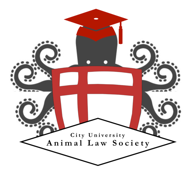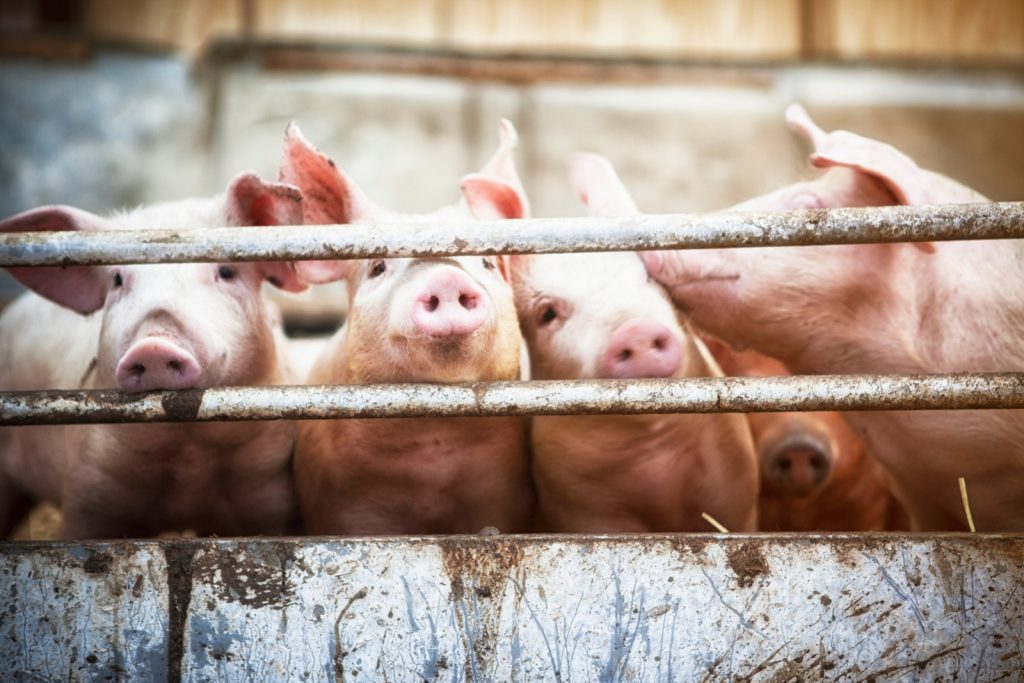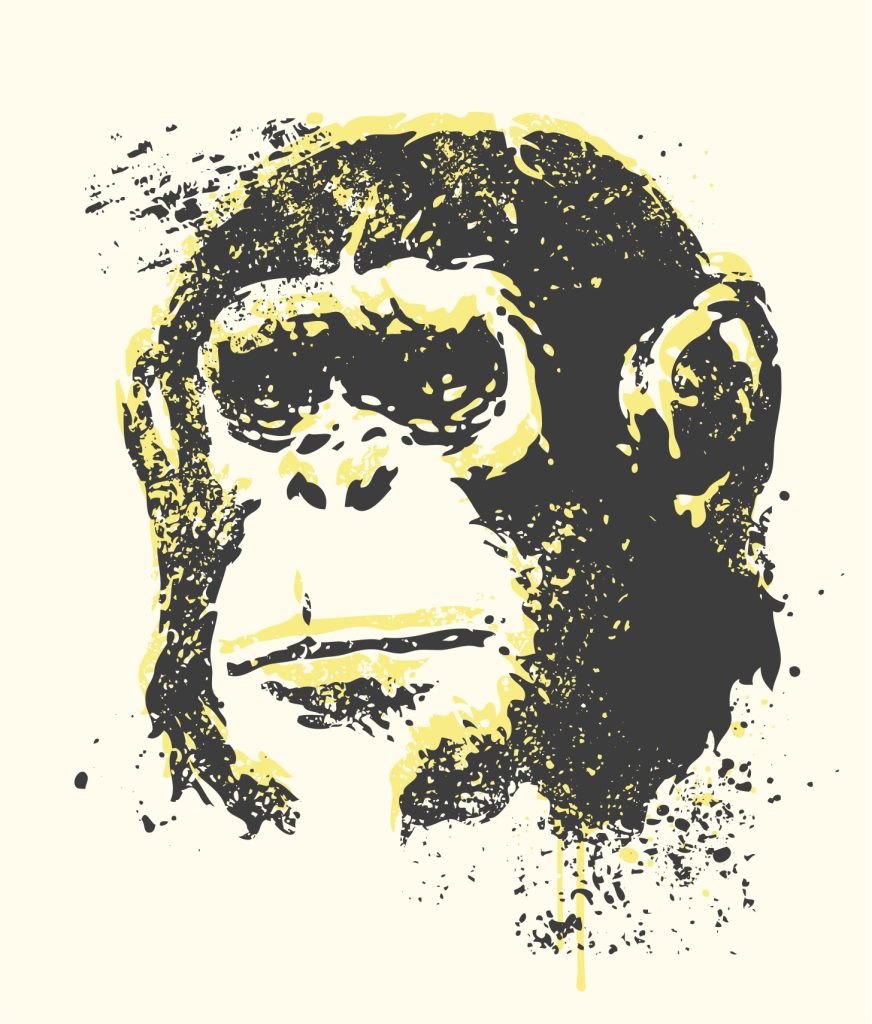
The Cecilia Moot is a mooting competition organised by City’s new Animal Law Society in partnership with the Law Society. Its purpose is to spread awareness of and interest in the field of animal law among students while offering them an opportunity to develop their advocacy skills. We are delighted that fifty-six students signed up to compete in this inaugural year, and that a brilliant group of practitioners are volunteering their time to act as judges and write problems for the competition.
Although it is not widely known among students, animal law is a growing field of research and an important area of legal practice. The number of law schools offering courses in animal law grows by the year. Among top universities, Harvard Law School has a leading Animal Law & Policy Program, and the University of Cambridge is soon to have its own Centre for Animal Rights Law. Reflecting the broader world of animal advocacy, animal law can be divided, if not cleanly, into on the one hand animal welfare concerns, which prioritise taking incremental steps to reduce the suffering of animals, and on the other hand the position of animal rights or abolitionism, which seeks to protect the fundamental rights of animals without compromise.

In the law, animal welfare is the object of practitioners working with statutes such as the Animal Welfare Act and the Animals (Scientific Procedures) Act. Among other things, such lawyers can bring prosecutions for animal cruelty offences (primarily on behalf of the RSPCA); challenge government decisions to licence animal experimentation and make requests under the Freedom of Information Act for information about such decisions; advise and represent undercover investigators on farms; and ensure that agricultural and other organisations adhere to advertising standards and tell the truth about their practices.

Animal rights law, at present, dwells largely in the domain of scholarship and theoretical work rather than in practice. Topics include the relationship between animal and human rights, the circumstances in which fundamental rights for animals could, and should, be introduced in law, and the legal form these would take.
However, this is not exclusively theoretical work, and some of the most fascinating recent animal law cases have involved animal rights in the courts. Our competition is named after Cecilia, a chimpanzee, who, in a world first, was found in 2016 to be a legal person by an Argentinian court and therefore in possession of legally enforceable rights. The Nonhuman Rights Project has pioneered this kind of work in the United States and is looking to introduce it in other jurisdictions.
Of course, many people value both approaches, and as the field develops, scholars and practising lawyers will have to work together in order to make novel legal concepts a reality for the good of animals. This is notably the case in policy recommendations, which must be both pragmatic and in line with a long-term ambition for the future of animals.

One organisation working in this area in the UK Centre for Animal Law, or A-law.
The Animal Law Society has had A-law’s support in organising the Cecilia Moot.
Edie Bowles, A-law’s student group manager and a trustee of the charity, spoke to us about A-law and her own work as an animal lawyer. She is a solicitor, and recently co-founded Advocates for Animals, the UK’s first animal protection law firm.
Edie, why, and how, did you become an animal lawyer?
I have always hated cruelty against anyone, especially towards those who are vulnerable. Animals, despite all their magnificence, are unfortunately vulnerable to humans. From this starting-point I have always wanted to have a career where I could somehow help challenge such cruelty.
I didn’t always know one could be an animal lawyer. The way it came about was more fortuitous than by a carefully thought-out plan. However, I do attribute my current position to being proactive and getting involved in any opportunity that came my way. This was mainly through volunteer opportunities with A-law. These opportunities allowed me to meet people working in the field and improve my knowledge.
What do you think are the most important animal law issues in the UK today?
Great question, but hard to answer as there really are so many. I think the things I would like to see dealt with in the near future are as follows:
1) Better protection for fish. Fish are sentient creatures, with ever-growing evidence revealing their intelligence, yet they are farmed in horrific conditions and often left to slowly suffocate to death.
2) Recognition that decapod crustaceans are sentient. There is a provision in the Animal Welfare Act that allows the government to extend the definition of animals covered by the Act to include invertebrates on the back of scientific evidence that the animal can experience pain or suffering. Such evidence exists for decapod crustaceans, so this provision should be exercised promptly.
3) A ban on live exports. This practice causes unimaginable pain and suffering to the animals that have to endure such long journeys. This will hopefully be made possible once we leave the EU due to us no longer being bound by the free movement principle.
4) A clamp-down on illegal fox hunting. Despite hunting with dogs being illegal, every Boxing Day we are still seeing foxes torn apart by hunts. This is made possible by flaws in the Hunting Act and the difficulty involved in enforcing the ban.
Sadly the above list is just a small handful of what I would like to see.
What is A-law and what does it do?
A-law is an organisation of people interested in protecting animals through the law. The charity acts as a hub of expertise, educating and assisting people to improve the law to protect animal interests. We have an active student group that works with student ambassadors at universities across the country and offers opportunities to write for our bi-annual magazine, Animal Justice.
What is Advocates for Animals and what does it do?
Advocates for Animals is the UK’s first animal protection law firm. We represent clients who wish to challenge violations of the legal protections afforded to animals and hold those responsible to account. This will be at all levels of wrongdoing, from an individual’s conduct through to government practices.
How would you recommend that students learn more about, and get involved in, animal law?
If anyone is interested in learning more and getting involved in animal law, the best thing they can do is join A-law. This will provide opportunities to volunteer, meet people working in the area and attend educational events.

We are grateful to Edie for answering our questions and to A-law for supporting the Cecilia Moot. We are looking forward to the first round of the Cecilia Moot next week and wish all our competitors good luck! Please be in touch with the Animal Law Society at animallaw@city.ac.uk if you have any questions, and like the society’s Facebook page to hear our latest news.
Many thanks to Sam Groom for putting this excellent piece together. Sam is a GDL student at City. He previously studied French and German at Trinity College, Cambridge, where his interest in animal rights, welfare and philosophy developed.

